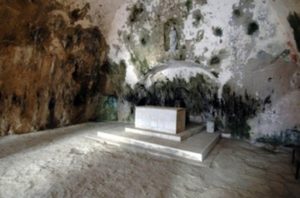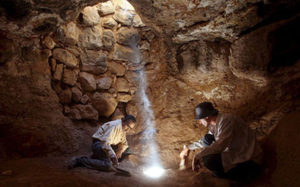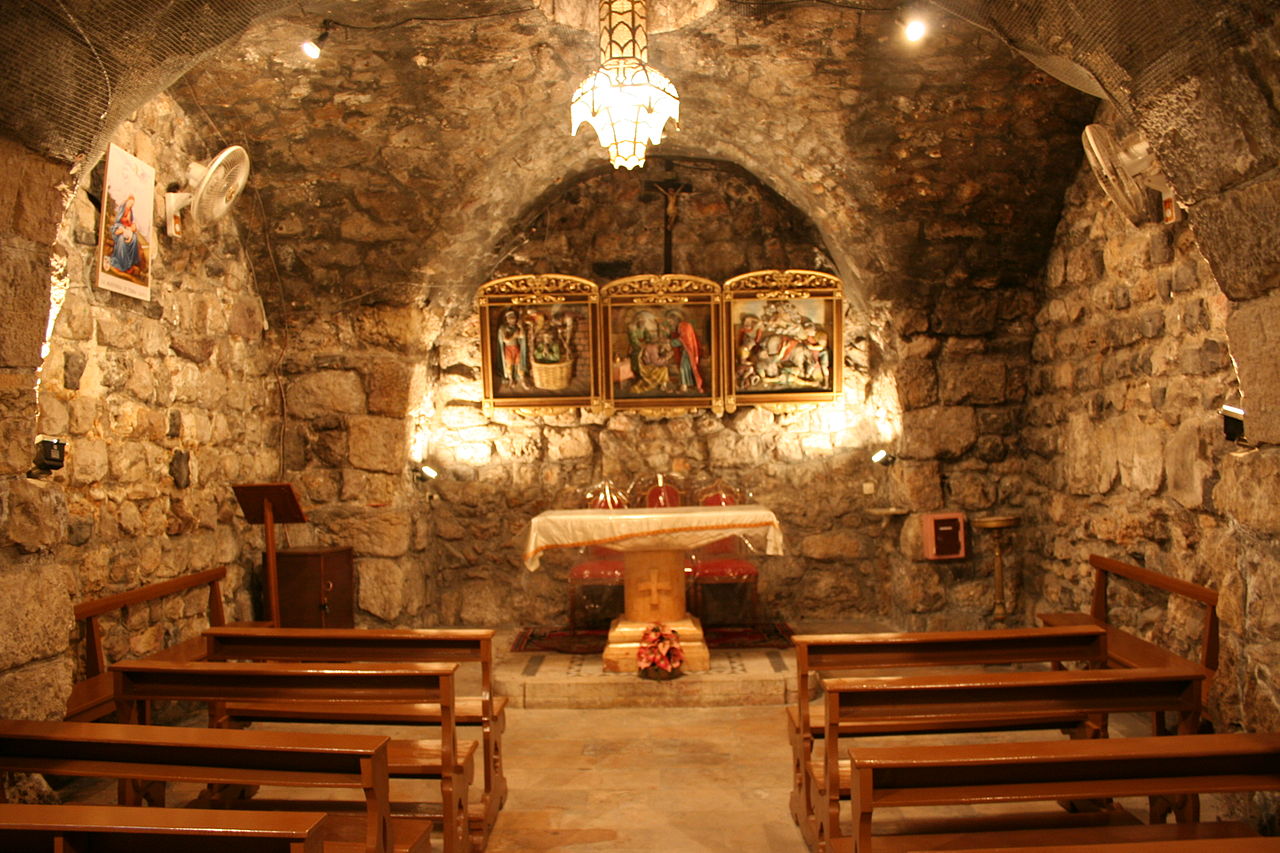Throughout the New Testament, one will find early creeds, formulations, and hymns that predate the New Testament itself. These texts are often called “proto-New Testament texts.” Proto-New Testament texts date back to the earliest church from those who were eyewitnesses of Jesus himself. 1 Corinthians 15:3-8 is perhaps the most popular of the proto-New Testament texts as it bears heavily on the post-resurrection appearances of Jesus. Concerning 1 Corinthians 15:3-8, Roy Ciampa and Brian Rosner write,

Paul had used the language of “receiving” and “passing on” traditions in 11:23 with respect to the Lord’s Supper. The information about the gospel had been passed on as being of first importance. While the expression could mean “at first” (and Paul undoubtedly shared this with the Corinthians very early on in his ministry among them), the nearly unanimous preference of English translations (first in importance) is probably correct.
The fact that he had received this information about Christ does not contradict his point in Galatians 1:12 that he received his gospel “by revelation from Jesus Christ.” While the basic gospel message was received by revelation from the Lord, the formulation he used in preaching the gospel included elements that had been passed on to him by those who were Christians before him, perhaps including the fact that Christ died for our sins and that it was according to the Scriptures, that his resurrection took place on the third day and that that was also according to the Scriptures, and the information about the witnesses to Christ’s resurrection.[1]
So, what can we learn about the earliest church from the proto-New Testament texts? In the next two sections, I will provide a listing of the more popular—and generally accepted—proto-New Testament creeds and hymns. In the conclusion, I will examine the implications of these texts as it pertains to the beliefs of the earliest church.
Creeds
- Romans 1:3-4 “concerning his Son, Jesus Christ our Lord, who was a descendant of David according to the flesh and was appointed to be the powerful Son of God according to the Spirit of holiness by the resurrection of the dead.”[2]
- Romans 10:9 “If you confess with your mouth, ‘Jesus is Lord,’ and believe in your heart that God raised him from the dead, you will be saved.”
- 1 Corinthians 11:23-29 “For I received from the Lord what I also passed on to you: On the night when he was betrayed, the Lord Jesus took bread, and when he had given thanks, broke it, and said, ‘This is my body, which is for you. Do this in remembrance of me.’ In the same way also he took the cup, after supper, and said, ‘This cup is the new covenant in my blood. Do this, as often as you drink it, in remembrance of me.’ For as often as you eat this bread and drink the cup, you proclaim the Lord’s death until he comes.”
- 1 Corinthians 15:3-8 “For I passed on to you as most important what I also received: that Christ died for our sins according to the Scriptures, and that he appeared to Cephas, then to the Twelve. Then he appeared to over five hundred brothers and sisters at one time; most of them are still alive, but some have fallen asleep. Then he appeared to James, then to all the apostles. Last of all, as to one born at the wrong time, he also appeared to me.”
- 2 Corinthians 4:5 “For we are not proclaiming ourselves but Jesus Christ as Lord, and ourselves as your servants for Jesus’s sake.”
- 1 Timothy 3:16 “And most certainly, the mystery of godliness is great: He was manifested in the flesh, vindicated in the Spirit, seen by angels, preached among the nations, believed on in the world, taken up in glory.”
- 2 Timothy 2:8 “Remember Jesus Christ, risen from the dead and descended from David, according to my gospel.”
- 2 Timothy 2:11-13 “This saying is trustworthy: For if we died with him, we will also live with him; if we endure, we will also reign with him; if we deny him, he will also deny us; if we are faithless, he remains faithful, for he cannot deny himself.”
- 1 John 4:2-3 “This is how you know the Spirit of God: Every spirit that confesses that Jesus is Lord has come in the flesh is from God, but every spirit that does not confess Jesus is not from God. This is the spirit of the antichrist, which you have heard is coming; even now it is already in the world.”
Hymns
- Philippians 2:5-11 “Adopt the same attitude as that of Christ Jesus, who, existing in the form of God, did not consider equality with God as something to be exploited. Instead, he emptied himself by assuming the form of a servant, taking on the likeness of humanity. And when he had come as a man, he humbled himself by becoming obedient to the point of death—even to death on a cross. For this reason God highly exalted him and gave him the name that is above every name, so that at the name of Jesus every knee will bow—in heaven and on earth—and every tongue will confess that Jesus Christ is Lord, to the glory of God the Father.”
- Colossians 1:15-20 “He is the image of the invisible God, the firstborn over all creation. For everything was created by him, in heaven and on earth, the visible and the invisible, whether thrones or dominions or rulers or authorities—all things have been created through him and for him. He is before all things, and by him all things hold together. He is the head of the body, the church; he is the beginning, the firstborn from the dead, so that he might come to have first place in everything. For God was pleased to have all his fullness dwell in him, and through him to reconcile everything to himself, whether thin

(c) Telegraph. Archaeologists at possibly one of the oldest Christian churches in Jordan, possibly dating just past the time of Christ. gs on earth or things in heaven, by making peace through his blood, shed on the cross.”
- Hebrews 1:1-3 “Long ago God spoke to the fathers by the prophets at different times and in different ways. In these last days, he has spoken to us by his Son. God has appointed him heir of all things and made the universe through him. The Son is the radiance of God’s glory and the exact expression of his nature, sustaining all things by his powerful word. After making purification for sins, he sat down at the right hand of the Majesty on high.”
- 1 Peter 2:21-25 “For you were called to this, because Christ also suffered for you, leaving you anexample, that you should follow in his steps. He did not commit sin, and no deceit was found in his mouth; when he was insulted, he did not insult in return; when he suffered, he did not threaten but entrusted himself to the one who judges justly. He himself bore our sins in his body on the tree; so that, having died to sins, we might live for righteousness. By his wounds you have been healed. For you were like sheep going astray, but you have now returned to the Shepherd and Overseer of your souls.”
Conclusion
What can one gather from the aforementioned proto-New Testament texts? In stark contrast to what many liberal theologians purport—that is, that the divinity and miracles of Jesus were late inventions, the following three observations are made. Frankly, it is startling how much emphasis the church placed on these three truths.
- From the earliest times of the church, Jesus was believed to have physically risen from the dead. The resurrection of Jesus comprised one of the more important aspects of the early church. There was no doubt in the earliest church that Jesus had in fact risen physically from the dead. The acceptance of Jesus’ resurrection was made as an essential aspect of a disciple’s faith in Jesus. Thus, the resurrection was not a late invention. Rather, it was an accepted and established fact by the earliest Christians.
- From the earliest times of the church, Jesus was believed to be the divine Son of God. Just as the resurrection was not a late invention, neither was the accepted divine nature of Jesus as the Son of God. I was quite startled at the force behind the statements found in the hymns of Colossians 1:15-20 and Hebrews 1:1-3. Even the statement “Jesus is Lord” points to the divine nature of Jesus. The Septuagint translated the personal name of God (“YHWH”) as the Greek equivalent to “adonai,” which was “kurios.” To proclaim “Iesous es kurion” (“Jesus is Lord”) was to equivocate Jesus’ identity with that of the Father. Jesus’ divine nature was not a late invention. It was one of the earliest accepted tenants of the church.
- From the earliest times of the church, Jesus was believed to be the exclusive way to salvation. The earliest church did not promote universalism—the idea that everyone would eventually be in heaven. Neither was the earliest church inclusivists—the idea that there are multiple ways to heaven. Rather, the earliest church accepted the fact that since Jesus was the Messiah, the Son of the Living God; then, he was the exclusive way to the Father.
Historians, apologists, theologians, and laity alike can learn a great deal from the proto-New Testament texts. This article has provided only a sample of the early texts found in the New Testament. The article has not even considered the great wealth of proto-New Testament texts found in the four canonical Gospels. Our New Testament is a trustworthy source for information about Jesus of Nazareth as its basis is found in the earliest church, whom had been given their message from Jesus himself.
About the Author
 Brian Chilton is the founder of BellatorChristi.com and is the host of The Bellator Christi Podcast. He received his Master of Divinity in Theology from Liberty University, his Bachelor of Science in Religious Studies and Philosophy from Gardner-Webb University, received certification in Christian Apologetics from Biola University, and hopes to work on doctorate studies soon. Brian is the pastor of Huntsville Baptist Church in Yadkinville, North Carolina.
Brian Chilton is the founder of BellatorChristi.com and is the host of The Bellator Christi Podcast. He received his Master of Divinity in Theology from Liberty University, his Bachelor of Science in Religious Studies and Philosophy from Gardner-Webb University, received certification in Christian Apologetics from Biola University, and hopes to work on doctorate studies soon. Brian is the pastor of Huntsville Baptist Church in Yadkinville, North Carolina.
© 2017. Bellator Christi.
Notes
[1] Roy E. Ciampa and Brian S. Rosner, The First Letter to the Corinthians, The Pillar New Testament Commentary (Grand Rapids, MI; Cambridge, U.K.: William B. Eerdmans Publishing Company, 2010), 745.
[2] Unless otherwise noted, all quoted Scripture comes from the Christian Standard Bible (Nashville: Holman Publishers, 2017).






It won’t let me EDIT my response, but point #4 should read:
4. – [c. 260-340] Eusebius – Early condemner of many early Christian heresies, yet Universalism was never one among them.
Thank you.
Hi Brian, I hope you are receptive, in the Spirit of Truth and being open to correct, that one of your conclusion is in fact wrong and can be proven.
Your article claims: “From the earliest times of the church, Jesus was believed to be the exclusive way to salvation. The earliest church did not promote universalism—the idea that everyone would eventually be in heaven”
This one point is at least, proven to be patently false. Not the Jesus the only way to salvation, that IS TRUE, but the last part…
According to the work done by well respected Patriarchal Scholar Ilaria Ramelli, the support was VERY PREVALENT in the early church, of course it wasn’t called “Universalism”, the doctrine was called: “Apokatastasis”:
4/6 churches taught this outcome that we have the earliest records of…even if you deny the first couple, the rest can be argued persuasively from their own writings or others to support the eventual salvation of all.
Of particular merit note the following:
1. The amount of native GEEK speaking teachers of this was overwhelming.
2. [354-430] St. Augustine (early, anti-Manichean phase) used the same argument ORIGEN did against pagans before he renounced the view and championed eternal torment.
3. [c. 296-373] Athanasius of Alexandria] AND [330-390] Gregory of Nyssa – Fathers and prime EDITOR of the Nicene Creed!
4. Early condemner of many early Christian heresies, yet Universalism was never one among them.
“Supporters of apokatastasis in roughly chronological order:
– [c. 30-105] Apostle Paul and various NT authors
– [c. 80-150] Scattered likely references among Apostolic Fathers
o Ignatius
o Justin Martyr
o Tatian
o Theophilus of Antioch (explicit references)
– [130-202] Irenaeus
– [c. 150-200] Pantaenus of Alexandria
– [150-215] Clement of Alexandria
– [154-222] Bardaisan of Edessa
– [c. 184-253] Origen (including The Dialogue of Adamantius)
– [♱ 265] Dionysius of Alexandria
– [265-280] Theognustus
– [c. 250-300] Hieracas
– [♱ c. 309] Pierius
– [♱ c. 309] St Pamphilus Martyr
– [♱ c. 311] Methodius of Olympus
– [251-306] St. Anthony
– [c. 260-340] Eusebius
– [c. 270-340] St. Macrina the Elder
– [conv. 355] Gaius Marius Victorinus (converted at very old age)
– [300-368] Hilary of Poitiers
– [c. 296-373] Athanasius of Alexandria
– [♱ c. 374] Marcellus of Ancrya
– [♱378] Titus of Basra/Bostra
– [c. 329-379] Basil the Cappadocian
– [327-379] St. Macrina the Younger
– [♱387] Cyril of Jerusalem (possibly)
– [c. 300-388] Paulinus, bishop of Tyre and then Antioch
– [c. 329-390] Gregory Nazianzen
– [♱ c. 390] Apollinaris of Laodicaea
– [♱ c. 390] Diodore of Tarsus
– [330-390] Gregory of Nyssa
– [c. 310/13-395/8] Didymus the Blind of Alexandria
– [333-397] Ambrose of Milan
– [345-399] Evagrius Ponticus
– [♱407] Theotimus of Scythia
– [350-428] Theodore of Mopsuestia
– [c. 360-400] Rufinus
– [350-410] Asterius of Amaseia
– [347-420] St. Jerome (later recanted on it)
– [354-430] St. Augustine (early, anti-Manichean phase)
– [363-430] Palladius
– [360-435] John Cassian
– [373-414] Synesius of Cyrene
– [376-444] Cyril of Alexandria
– [500s] John of Caesarea
– [♱520] Aeneas of Gaza
– [♱523] Philoxenus of Mabbug
– [475-525] Pseudo-Dionysius the Areopagite
– [♱543] Stephen Bar Sudhaili
– [580-662] St. Maximus the Confessor
– [♱ c. 700] St. Isaac of Nineveh
– [c. 620-705] Anastasius of Sinai
– [c. 690-780] St. John of Dalyatha
– [710/13-c. 780] Joseph Hazzaya
– [813-903] Moses Bar Kepha
– [815-877] Johannes Scotus Eriugena”
May Christ be with you!
– Brett
Brett, I appreciate your detailed response. However, I must disagree. It is clear from the pre-New Testament passages presented in the article that Jesus was indeed the exclusive way to heaven. Consider 1 John 4:2-3. The apostle recounts an early confession that notes the distinguishing difference between the spirit of Christ and the spirit of antichrist. The confession presupposes that not everyone would receive Jesus. Furthermore, consider the teachings of Jesus himself in John 14. Jesus said, “I am the way, the truth, and the life. No one comes to the Father except through me. If you know me, you will also know my Father. From now on you do know him and have seen him” (John 14:6, CSB).
While I am not prepared at the moment to respond to all the claims you posited, many in the early church held that Origen strayed from orthodox Christianity in some areas. Thus, Origen, while a fantastic scholar, is probably not the best example to use. Augustine clearly taught eternal torment as did many of the early church fathers. But all these points are in fact moot for sake of the article’s argument. The article was exploring the earliest church, the teachings of the earliest apostles which were derived from Jesus himself. In this regard, the argument holds.
The fact is, outside of Origen and a few aberrations, subsequent generations of the church did not hold to universalism either. Justin Martyr wrote,
Understand, I wish it was where universalism was true. I take no pleasure in the thought that there are individuals in an eternal hell. However, from the clear teachings of Scripture and of the interpretations of the earliest church, universalism is inherently false.
Blessings,
Brian
[…] The fact that he had received this information about Christ does not contradict his point in Galatians 1:12 that he received his gospel “by revelation from Jesus Christ.” While the basic gospel message was received by revelation from the Lord, the formulation he used in preaching the gospel included elements that had been passed on to him by those who were Christians before him, perhaps including the fact that Christ died for our sins and that it was according to the Scriptures, that his resurrection took place on the third day and that that was also according to the Scriptures, and the information about the witnesses to Christ’s resurrection.[1] […]
Great post! Thanks so much for sharing!
Thank you Pastor Johnson! May God continue to bless your ministry. Blessings to you and yours.
Brian